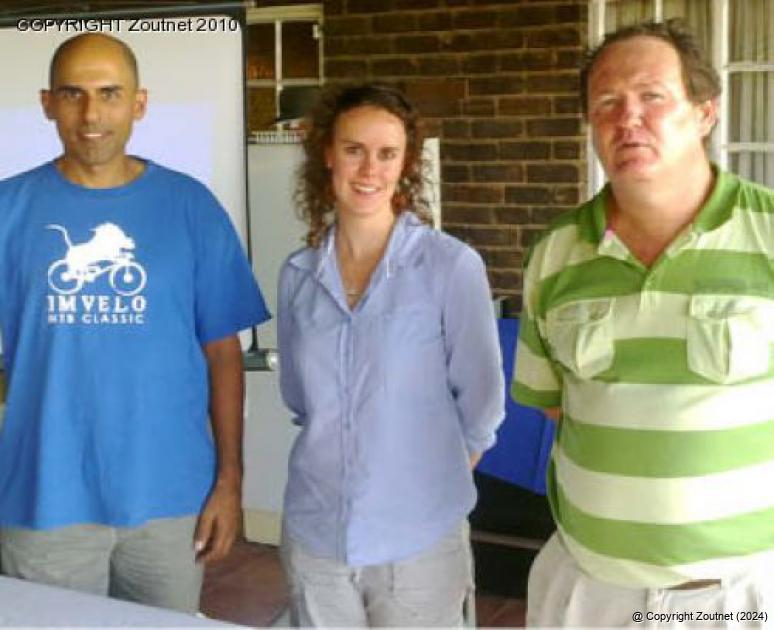

ADVERTISEMENT:

Prof Ara Mondajem (University of Swaziland), Ms Stephanie Roberts (Subtropical Growers Association technical advisor) and Prof Peter Taylor (University of Venda) at a farmers’ study group meeting in Levubu. Photo supplied.
Univen researchers launch bat bio-control project
News - Date: 04 June 2010

Recent Articles
-

Former mayor of Tshwane, Dr Murunwa Makwarela, passes away
26 April 2024 By Victor Mukwevho -

Community relieved after suspect gets caught
26 April 2024 By Elmon Tshikhudo -

Ystervrou van die Bosveld oorlede
26 April 2024 By Pétria de Vaal -

Arrestasie ná boere dreig om te skiet
26 April 2024 By Andries van Zyl

